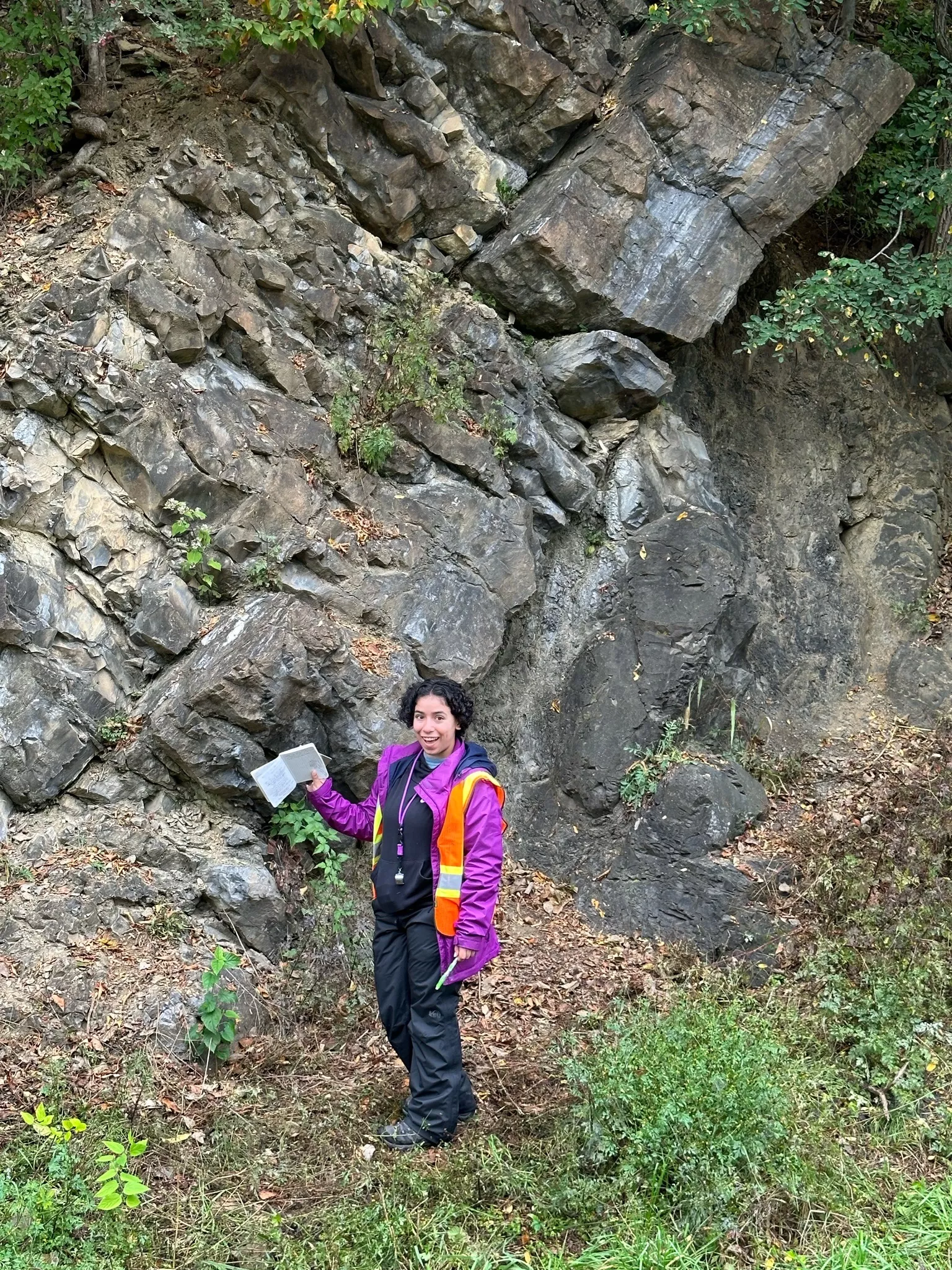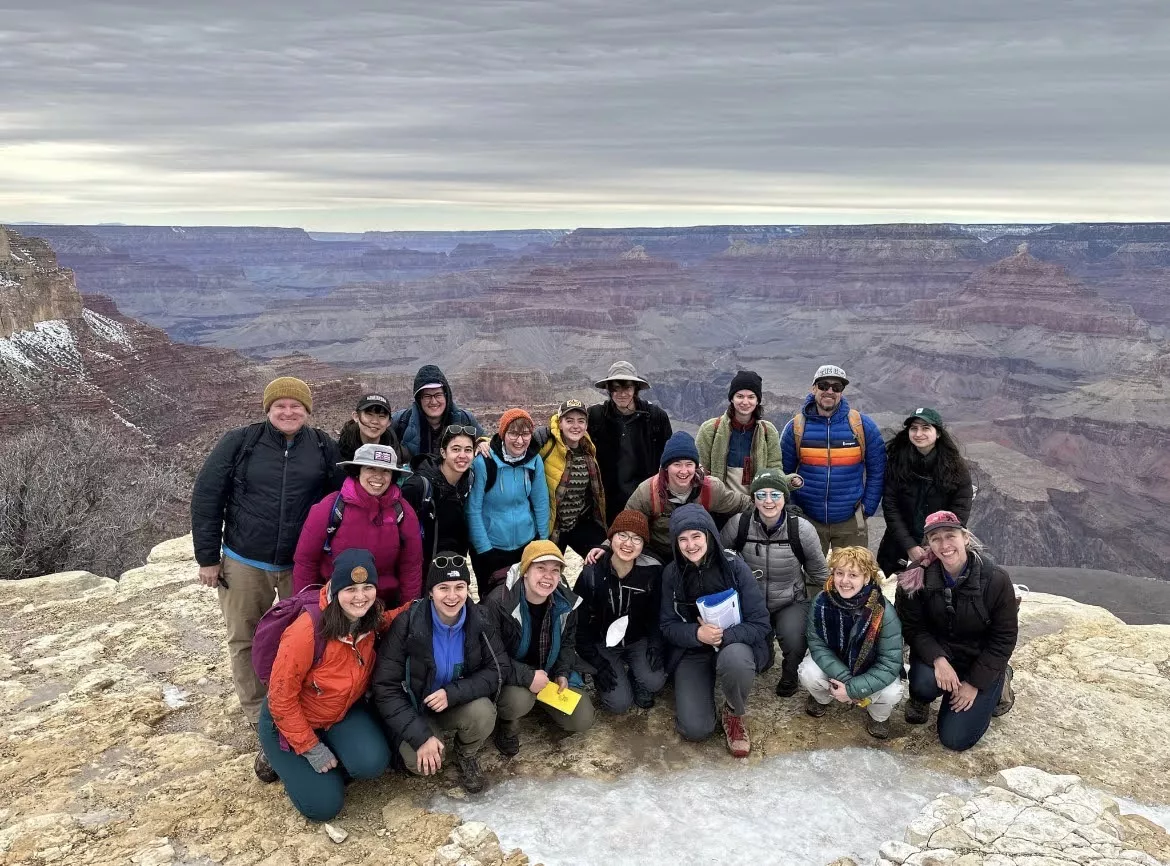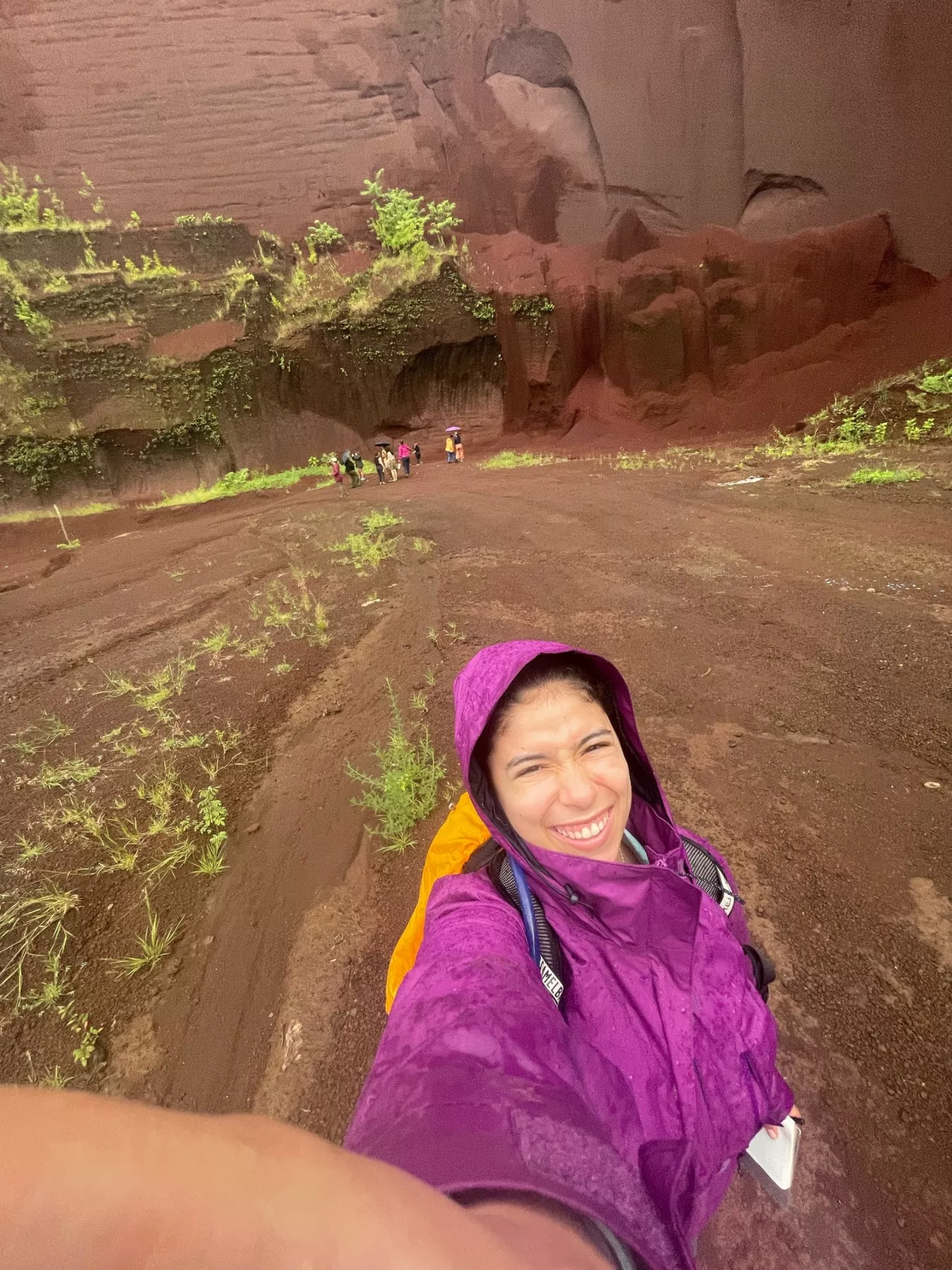
Major Moment: Adalia Rodriguez '24
"While we can sit and spend hours on these topics in the classroom, nothing can top being out in the field and seeing how geology from millions to billions of years ago is represented in the modern world."
"While we can sit and spend hours on these topics in the classroom, nothing can top being out in the field and seeing how geology from millions to billions of years ago is represented in the modern world."
Currently, Adalia is a supervisor at New Dorm Dining Hall, a tour guide and one of the coordinators for Black at Bryn Mawr. In her words, “Black at Bryn Mawr is a student run project highlighting the history of Black workers, students and housing of Bryn Mawr and how it relates to the antiracism work of the College. All these jobs have helped improve my leadership skills while also allowing me to explore how we can continue to build an antiracist framework in and outside of the classroom.” She is also a geology major, a department she found “by accident.”
What is your major and how did you first become interested in it?
The summer before my freshman year, I had the opportunity to interview a faculty member from any STEM department and I chose geology since it was a field I was extremely unfamiliar with. The professor I spoke to primarily talked about his research and the type of field work he does, and I was immediately sold. In that instant, I knew I wanted to major in geology. In retrospect, I think I have always been interested in this field, but I never had the opportunity to be directly exposed to what geology consists of until that moment. I have always had a natural fascination with the Earth’s processes and how the environments around us have taken millions to billions of years to form — making us no more than a speck of dust in Earth’s history.
Did you enter college knowing what you wanted to major in? How have the classes you’ve taken at BMC either confirmed your interest in the major or surprised you with a new interest?
I was supposed to enter Bryn Mawr as a psychology major and learning about geology completely changed my trajectory. However, if I had not done that interview, I still think I would have ended up in a geology course to fulfill a credit and thus still majoring in it. Every single course that I have taken in the department has continued to confirm my interests because I genuinely have fun. For example, I took arguably the hardest course in the spring of my freshman year which was a course about mountain building processes. While I have no plans to have a career in that subdiscipline, I have continued to take courses surrounding that topic because we were able to learn about these processes in the classroom on a PowerPoint and then go out into the field and explore these features that are miles in height and width.
Favorite class or experience you’ve had because of your major?
I have a lot of favorite memories, but one of my most recent is going to a salt marsh in southern New Jersey to collect sediment core samples for my thesis. To get to the site, we had to take a small boat through a wide creek, to get to the sample area, we had to cross through a few feet of mud. Here are a few things to note about this situation: I am not even 5 feet tall, and this mud was nearly like quicksand. I wore boots that went up to my upper thigh but as I stepped into the mud, I would sink to my thighs. The second note is that these boots were big on me as I had small feet so as I tried to pull my boot out of two feet of mud, my foot would slip out the boot as the boot remained stuck. However, this was a fun time for me for the adventure of it all. I love getting to engage in new projects and opportunities to explore all sorts of environments, including a muddy salt marsh. Additionally, during my time in the marsh, I learned how to gather sediment cores, which are about a meter long tube of mud that we collect to analyze back at Bryn Mawr. Prior to this experience I had never done field work so getting a chance to learn data collection procedures was a wonderful opportunity while learning about career paths in marine science from the four adults that I was with. As I now begin to sample these cores for my thesis, which aims to reconstruct sea levels in this marsh area, I can now appreciate to a greater degree the work required to collect these samples.
What experiential learning opportunities have you had with your major?
Geology is about the Earth’s processes. While we can sit and spend hours on these topics in the classroom, nothing can top being out in the field and seeing how geology from millions to billions of years ago is represented in the modern world. I’ve had the privilege to go to the Florida Keys, Arizona and Nicaragua to see the stories of formations that I am standing right in front of and learning how it plays into the regional geology. Furthermore, professors have helped point me in the direction of internships — I have explored island shoreline changes, deep sea sediments and now undertaking my thesis on salt marsh sea level reconstruction which I started in the summer through Summer Science Research.
How has choosing this major shaped your post-graduation plans?
Growing up, it has always been instilled in me to go to college, but never what to do after that so up until recently, I had always felt lost within this conversation. However, the relationships that I have built with my professors in geology throughout the years have fostered conversations about how they got into research and the challenges which come with graduate school. Furthermore, the major is designed to give students a well-rounded Earth science education that gives us skills to apply in any field. Currently, I am interested in oceanography and want to pursue a graduate degree which specializes in paleoclimates or sea level reconstruction.
What advice would you give a student about the process of declaring a major?
My biggest piece of advice is making sure you will actually enjoy taking classes in that major. Sometimes students may declare a major in an area that will be a steppingstone in their careers but then don’t like the content of the classes. The liberal arts approach of Bryn Mawr allows students to take a major and essentially pivot into any career— use this idea to find a major that enriches you as an individual. Talk to professors and students within your potential majors to see if it is the right fit for you.


